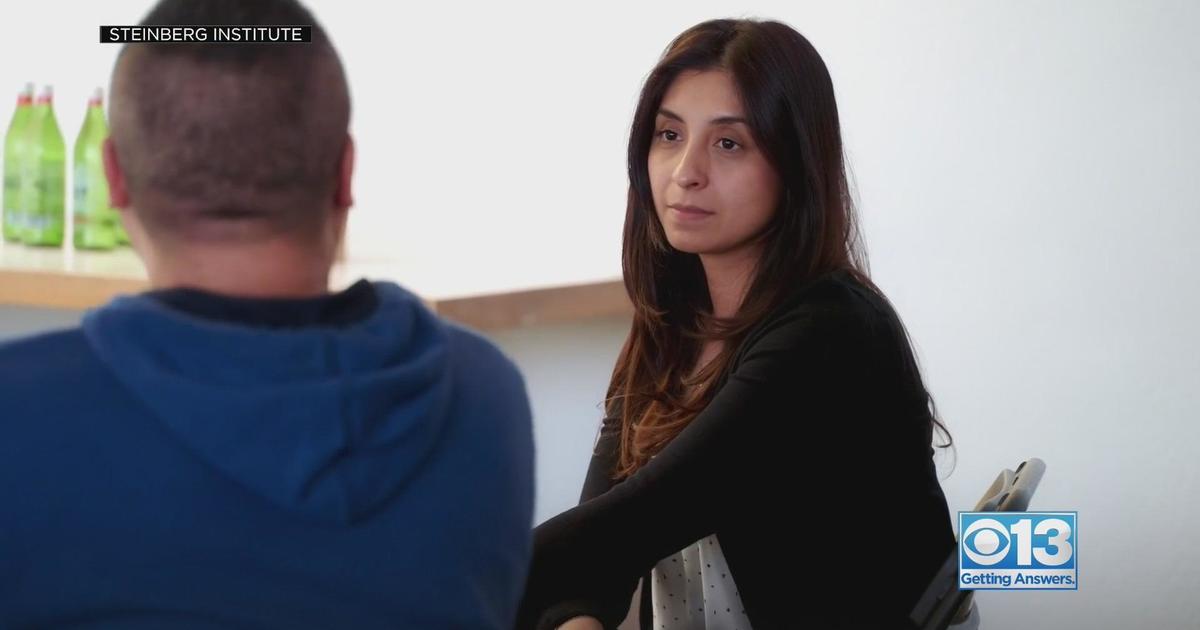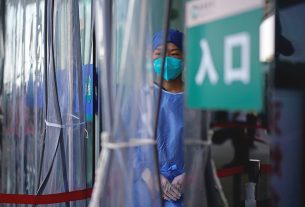[ad_1]
MODESTO — Thursday marks Mental Health Action Day in the month of May dedicated to raising awareness for mental health.
Data shows that 1 in 5 adults nationwide experience a mental illness each year; more than half do not receive any help for it.
Part of the problem is that there are not enough mental health clinicians to treat the number of patients who are in crisis.
“The demand so far outweighs the resources that we have,” said Dr. Elizabeth Morrison.
Morrison jokingly calls herself a “triple therapist”: she’s a psychologist, a licensed clinical social worker, and has a master’s degree in addiction counseling.
After practicing for 27 years, she knows firsthand there is a great need for more people like her, especially in Stanislaus County.
“It’s a county that has one of the most severe shortages for mental health clinicians. That has been true a long time. Post-pandemic, it’s become a real emergency,” said Morrison.
As patients wait months for mental health appointments, her goal is to get them the help they need, faster.
“Just to abolish waiting lists, to abolish that bottleneck,” said Morrison.
Her vision started with a question — could the solution lie with everyday people?
Morrison thinks so. She took her decades of experience and co-founded the Lay Counselor Academy. It’s a training program to help those without the degrees and licensing become mental health counselors.
“As revolutionary and as radical as it may sound, lower income countries have been doing it for decades,” said Morrison. “It’s astonishing that we are seeing no differences between treatment outcomes and the experience of the people we are treating between people who are licensed like myself and people who don’t have degrees and licenses.”
Stanislaus County’s Behavioral Health and Recovery Services entered a contract with the Lay Counselor Academy to send 50 of its case managers and outreach workers to be trained by Morrison and her team to become lay counselors.
That entails 65 hours of hands-on training, complete with actors, teaching participants how to respond to patients.
“When somebody says, ‘How is it possible to train someone to do mental health counseling in 65 hours?’ I always say, ‘It isn’t possible. And that’s not what we are doing.'”
What they are doing is taking people who already have the natural skill for relating to people and training them up on the most important part of therapy: the human connection.
“It really depends on the skills way more than any sort of education,” said Alli Moreno.
Moreno is a lay counselor and co-founder of the academy with Morrison.
She left her job as a criminal defense investigator working with inmates on California’s death row and found a new passion in helping people.
“We believe in this as a solution,” said Moreno. “The people like myself who do not have licensure, we are getting the same, or better in some cases, responses from the patients.”
Morrison and Moreno both say this is in no way meant to replace licensed mental health clinicians, but to supplement.
Transparency is one of the most important factors.
“There’s a code of ethics around never in any way misleading people, exaggerating credentials,” said Morrison.
Lay counselors are especially important in places that are more rural, with higher rates of poverty and that have more difficulty recruiting clinicians.
In many ways, Morrison says this diversifies the mental healthcare field.
It makes it more accessible for people who might have the passion and skill to do this work, but that cannot afford to invest time and money in getting the highly specialized degrees. Those people will return to their own communities, and reflect their communities as counselors.
“For many people, most people in our experience, what the credentials are is not the most important piece,” said Morrison.
Morrison’s own practice, EM Consulting, is made up of 3/4 lay counselors and 1/4 licensed clinicians.
It all comes down to the human connection. That’s not something that can just be taught to everyone, Morrison says. But there are some who are fast learners, devoted helpers, and who have the ability to make a huge difference for those who need mental healthcare.
The lay counselors receive weekly clinical supervision from people who are licensed after they complete their training, fostering an environment of constant learning and growth.
The academy focuses on group contracts with agencies who will then focus on how to implement lay counselors into real-life practice, and ensure their success.
“We’re getting feedback from people who are having the first positive experience with counseling in their lives,” said Moreno.
[ad_2]
Source link



